Allentown, PA – In a new video, members of UAW Local 677, who build Mack Trucks in Pennsylvania’s Lehigh Valley, speak out against broken trade deals that are threatening thousands of good blue-collar jobs. The video highlights the deep frustration and disappointment felt by workers who have dedicated their careers to producing quality trucks in the Lehigh Valley, while the company pursues plans to offshore jobs to a new low-wage, high-exploitation facility in Mexico.
“We’re collateral damage, basically, to someone’s stroke of a pen. And it’s scary to think that that happens in this world today. It really does make you reevaluate what you mean to your employer. Or what you don’t mean to your employer,” says Nicole DeFuso, a skilled trades apprentice at Mack.
To view the full video, click here.
In 2023, Mack Truck workers went on strike to win a new agreement at the iconic truck maker. During those negotiations, the company falsely represented plans to further invest in Pennsylvania. Instead, the company has broken ground to build a facility in Monterrey, Mexico, where workers are likely to make less than $4 an hour.
The UAW has filed Unfair Labor Practice charges at the National Labor Relations Board over the company’s bad faith bargaining. Mack’s decision to build a plant in Mexico—rather than keeping production in the United States—is the direct result of disastrous trade policies such as NAFTA and its successor, the USMCA.
These policies, backed by both major political parties, have paved the way for corporations to chase lower wages and weaker labor protections, leaving American workers behind. The move threatens good-paying union jobs, undermines the region’s economic stability, and represents what workers have called “a slap in the face” after years of dedication and commitment.
“The products are being sold for the same amount if not more. But that’s all going into the pockets of the corporations,” says Michael Shupp, a Local 677 member at Mack.
The newly released video provides firsthand accounts from UAW Local 677 members, who express their concerns about job security, economic uncertainty, and the erosion of domestic manufacturing. It calls out the bipartisan failure to protect American workers from these trade policies, which have fueled a race to the bottom in wages and working conditions, allowing corporations like Mack to exploit cheaper labor abroad at the expense of U.S. jobs.
The UAW has been vocal in demanding the immediate renegotiation of the USMCA, recognizing that for 40 years, so-called “free trade” has devastated the working class. Corporations have driven a relentless race to the bottom, killing good blue-collar jobs in America while exploiting workers in other countries with poverty wages. The union has also encouraged the use of tariffs as a tool in the fight to undo the injustice of anti-worker trade deals.
“I remember when I was a kid, my dad would talk about NAFTA. Now you read up on this stuff and you see how much destruction that certain things can have,” says DeFuso.
“We need to have laws that are going to support us and not have to be worried about potentially losing our jobs,” says Dan Hand, a Committeeperson with Local 677.
The union has expressed that if corporate America chooses to jack up prices on the working class or throw their own workers under the bus just to avoid paying their fair share, they should pay a penalty. The working class took the full hit when NAFTA hollowed out manufacturing towns like those in the Lehigh Valley, and they shouldn’t bear the brunt of undoing it, too.
The UAW is actively engaged in negotiations with the Trump Administration regarding its plans to end the free trade disaster. The union is looking to negotiate the terms of the upcoming auto tariffs in April in a way that benefits the working class. The union is demanding serious action to incentivize companies to change their behavior, reinvest in America, and stop cheating the American worker, the American consumer, and the American taxpayer.
Full text of video here:
The policies that reflect trade have not been on the worker side for many years.
And here we are.
Having them breaking ground in Monterrey, Mexico, for a Mack facility.
Collateral damage basically to someone’s stroke of a pen. And it’s scary to think that that happens in this world today.
When the company is looking at where they can go, they’re going to find the cheapest place possible. And in 1994, GM was moving to Mexico because they could pay their employees $0.48 an hour. Mack is currently moving to Mexico because they can pay their employees $3 to $4 an hour.
Really does make you reevaluate.
Wait, what you mean to your employer, or what you don’t mean to your employer?
Now, with this information, as far as with the Mexico plant, this is the first time that myself, in over 26 years, and I’m actually concerned about the longevity of the plant.
I remember when I was a kid, my dad would talk about NAFTA, and he was so mad about it. And I was just like, I don’t know what that is.
But now you read up on this stuff and you see how much destruction that certain things can have.
We need to have laws that are going to support us and not have to be worried about potentially losing our jobs.
The products are being sold for the same amount, if not more. But that’s all going into the pockets of the corporations.
Like, this is our life. This is our livelihood.
There’s a lot of question marks as far as where we’re going to be in the future.
You know, the work is important to us.
Maybe they had this in the back of their mind the whole time, that they would just move this plant and save the money on wages, going to a foreign country where they’re going to pay them pennies on the dollar to do the same labor that we do.
They’re building a bigger divide between the haves and have-nots.
The income down in Mexico is very low compared to what it is here.
They need to support their families as well.
You want to feel like your livelihood matters.
It will definitely affect work here in the Lehigh Valley.
I have 25 years in the place. You know, I planned on retiring from there.
Who wants to see us go?
Nobody, really.
When it comes to manufacturing, those are good jobs that we need to fight for.





UAW Statement on U.S. Trade Agreement with Japan
Penn Postdocs and Research Associates Win Their Union
UNION PLUS – COLLEGE PROGRAM